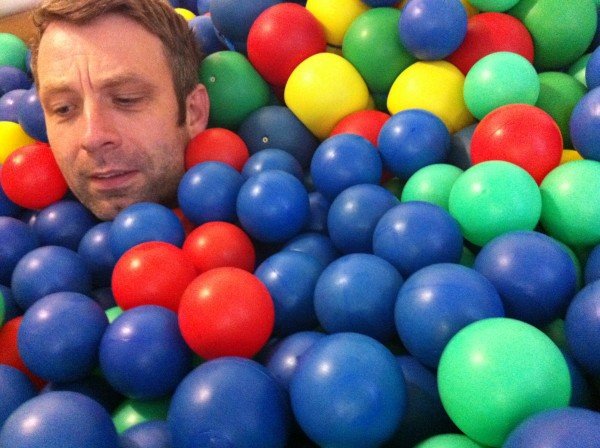
My Last Post – Some Things I’ve Learned at BBH
Ben Malbon
30/09/2010
THE START BIT
I stumbled through the door of BBH London on March 29 2005. I was terrified. Despite coming from arguably the best & most famous planning agency of all time (BMP in London), I was (as we say in the UK) ‘sh*tting my pants’. Everything that felt charming yet amateur about BMP had been brutally and suddenly replaced by a new world of complete professionalism, extraordinary process and unrelenting focus. It was, quite literally, Day 1 at the Big School. Even Lotus Notes felt awesome.
Three moments defined my first few months there. I thought I might share them, as I disappear, because I think they’re still relevant.
Like every new hire I had a brief meet & greet with Nigel Bogle in week one. Of course, he was scary and brilliant in equal measure, but what he said to me in our first meeting stayed with me. Perhaps, looking back now, it was the one moment that defined my time at BBH more than anything else. While welcoming me, he heavily stressed the importance of not fitting in, of not becoming a BBHer, of not doing things the ‘BBH way’, but instead, of being the disruptor, the challenger, the thorn. For better or for worse, I took him at his word; if nothing else, it’s true to say I’ve never really fitted in at BBH.
Anyway, in week one (literally Day 2, if I recall correctly) I found myself pitching for Google. An extraordinary experience, partly because of the ace people I was pitching with (Robson, Exon, Stainer) and partly because of the crazy clients. They had no idea what they wanted, but they didn’t want an ad agency. And so we didn’t give them one (the title slide of our pitch said simply ‘WE DON’T WANT TO BE YOUR AD AGENCY’). We gave them an ideas engine that was an extension of their own company, but which operated outside the (even back then) stifling constraints of their own insane business. We didn’t make much money for the agency but we made important contacts (our client back then is now the global CMO of Google) which we’ve nurtured over that five-year period, and we developed a way of approaching creativity that was quite different to anything any of us had experienced before. No hierarchy, no titles, no departments, no egos, virtually no rules. Fun, frantic, fruitful. Three things stuck: I knew that was the model for me going forward, that Google was the most extraordinary company I’d come near, and that the Internet was the most disruptive & magical thing ever.
Third, just weeks after BBH won the Google pitch, I was on the British Airways pitch. I had no idea at the time just how much baggage (no pun intended) this pitch would arrive with. Having been narrowly beaten to the business by M&C Saatchi ten years before, for Nigel & John in particular, but for BBH more widely, this was an opportunity to right the wrongs of a decade previously. In addition it was a huge and highly prestigious piece of global business. I worked with some phenomenal people – my future BBH Labs partner in crime, Mel Exon, Derek Robson (who also pitched Google with me), Guy Murphy, and I had my first taste of the overwhelming firepower of the fully operational battle station that is BBH at it’s best. We worked with Gwyn Jones & team in NYC, and with Ben Fennell & team in Singapore; pure BBH. Together, these people re-calibrated my benchmark for what an agency could do, and how it might do it. It was the best pitch experience I’ve ever had; it was also the hardest three months of my life. But I took away from it an utter conviction around two beliefs; that (a) literally nothing was impossible at BBH, and (b) there was probably no better agency on the planet at that time.
Anyway, all rather dull historical context. It’s five-and-a-half years later. Here I am about to leave. I’ve learned a ridiculous amount at BBH. Perhaps more than anything, if I learned how to not be an academic at my first agency (Duckworth Finn), and I learned how to be an ok account planner at BMP, at BBH I learned how to apply strategic thinking to a much broader canvas. I was liberated by BBH; the disciplinary shackles were removed. Much of this learning was beaten into me by truly world-class people, at all levels, not just the scary senior legends you might imagine. And a tiny proportion of it was the product of my own stumbling invention and experimentation (a fair chunk of that with Mel Exon, to whom I owe particular thanks).
THE MIDDLE BIT
In any case, here are a few of the things I’ve learned along the way, from BBH London days (Google & BA), through Head of Account Planning & ZAG leadership in NY, BBH Labs start-up and (once again) to Google days over here in NYC, & my most recent Innovation role. As ever, many people will disagree with some of them; some people will disagree with all of them. They’re in no way intended to be definitive. But they are what I think is the right approach.
—
Only people matter
They matter more than clients, more than teams, more than fancy buildings, smart suits or posh titles; they matter even more than the ideas. Great ideas are just what happen when the right people are put together and organized (or not) in the right way. The only role of agency management is to find, retain, organize and inspire others. If management is not doing this, they’re part of the problem.
None of us is as good as all of us
This is a classic Bogle-ism, one of his very best, and it’s never been more true than today. Avoid the Prima donna at all costs; as Calle Sjoenell (our ECD on Google at BBH) notes, ‘no egos, no drama’.
Ask forgiveness, not permission
The people that make a difference tend to be the ones that don’t seek approval first. They are often not the most popular. They’re rarely the most rewarded. But they’re the most valuable. If you can bring yourself to put up with them, they will be your secret weapon. And they’re way better on your team than on someone else’s.
Awesome is always scary
The vast chasm between really good and extraordinary is filled with fear. If you push yourself to the extent that you’re deeply uncomfortable, you’ll be fine; if you’re comfortable, you’re not pushing hard enough.
Give *everything* away
Be generous with ideas, with credit, with opportunities, and most important of all, with time. Although it’s not the real point, be reassured that this generosity *always* comes back.
Do less, but do it better
We try and do too much because we’re not honest with ourselves about what we’re best at and we’re not honest with our clients about what we’re really capable of. One of the unheralded roles of planning is to distill, simplify and encourage focus; to eliminate nonsense, or the chance that nonsense might occur. Strategy is, indeed, the art of sacrifice.
We can’t be friends *all* the time
If we’re not passionate about what we do, we should pack up and leave. If you’re not upsetting someone, somewhere, most of the time, you’ll end up with ‘average’. This includes clients, but perhaps more importantly applies internally.
Build & love your network
You don’t have to share an office with the best people around to work with them, or learn from them. If you’re lucky, you’ll share an office with some of them (I’ve been lucky many times over). When Mel & I launched Labs we had no idea we’d develop such a strong group of supporters and advisors. We still have no idea how we have. But they – not us – have built Labs.
PowerPoint is the enemy of awesome
There’s an inverse relationship between the quantity of PowerPoint produced by a team and both the quality of work produced by that team, and their level of happiness.
Make sure it’s fun
It’s all just a gigantic game.
So, summing up this already tediously over-long account, this is the deal:
THE END BIT
I was lucky enough to snowboard with John Winsor (@jtwinsor) this March, in Vail. As you might guess, he literally left me standing, and in some cases, climbing out. But we caught up on life on the ski lifts back to the top and talked about a lot of stuff. The next day he sent me this (below). It’s by the poet Rainer Maria Rilke. It blew me away.
–
Only someone who is ready for everything, who doesn’t exclude any experience, even the most incomprehensible, will himself sound the depths of his own being. For if we imagine this being of the individual as a larger or smaller room, it is obvious that most people come to know only one corner of their room, one spot near the window, one narrow strip on which they keep walking back and forth. In this way they have a certain security.
And yet how much more human is the dangerous insecurity that drives those prisoners in Poe’s stories to feel out the shapes of their horrible dungeons and not be strangers to the unspeakable terror of their cells. We, however, are not prisoners. No traps or snares have been set around us, and there is nothing that should frighten or upset us. We have been put into life as into the element we most accord with, and we have, moreover, through thousands of years of adaptation, come to resemble this life so greatly that when we hold still, through a fortunate mimicry we can hardly be differentiated from everything around us. We have no reason to harbor any mistrust against our world, for it is not against us. If it has terrors, they are our terrors; if it has abysses, these abysses belong to us; if there are dangers, we must try to love them. And if only we arrange our life in accordance with the principle which tells us that we must always trust in the difficult, then what now appears to us as the most alien will become our most intimate and trusted experience.
How could we forget those ancient myths that stand at the beginning of all races, the myths about dragons that at the last moment are transformed into princesses? Perhaps all the dragons in our lives are princesses who are only waiting to see us act, just once, with beauty and courage. Perhaps everything that frightens us is, in its deepest essence something helpless that needs our love.
~ Rainer Maria Rilke, 1904
–
Massive thanks to all the completely ace BBH-ers I’ve worked with since 2005. You will continue to make BBH a magic place to be & to learn.
Bye. @malbonnington








